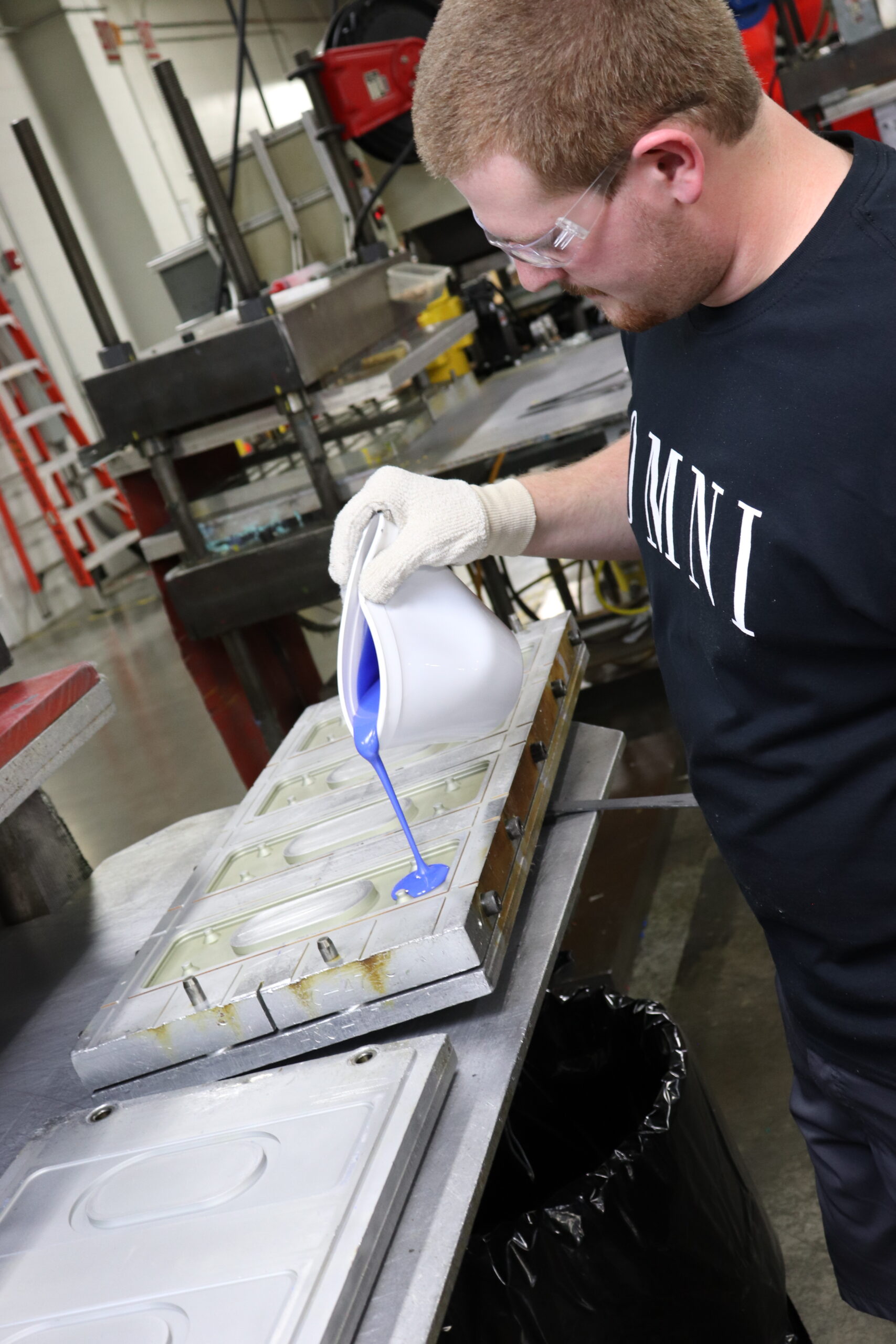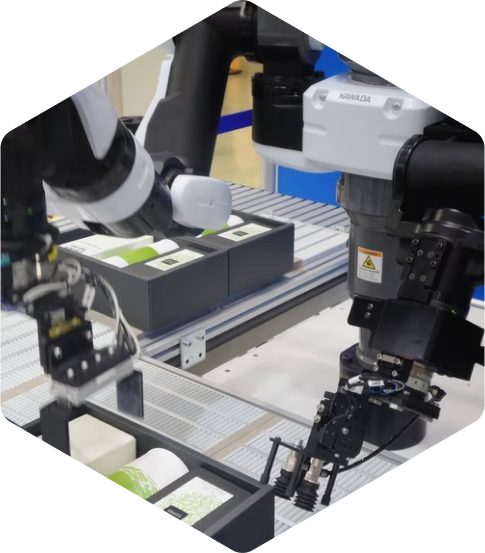Molded plastic parts play a crucial role in various industries, from OEMs to packaging machinery to industrial automation. While the production of these parts offers numerous advantages, it also comes with its fair share of manufacturing challenges.
Material Selection Dilemmas
One of the biggest challenges in molded plastic production is selecting the perfect plastic material. It’s like picking the right ingredients for a recipe; the success of the final product depends on it. However, plastic manufacturing companies often find themselves in a maze of challenges — juggling material properties, compatibility issues, supply chain disruptions, inventory management of available materials, and the need to ensure that custom components are cost-effective for consumers.
Despite the challenges associated with material selection, ensuring customer satisfaction with the plastic material selected is possible. At OMNI, our designers and engineers will guide you through the vast array of available materials and discuss the positives and negatives of each option as it relates to your specific application. Together, with our team, you can overcome the challenge of decision-making and instead focus on product development and the production process.
Material Testing and Prototyping
But it doesn’t stop there. Material testing and prototyping allow manufacturers to see how a chosen material performs under different conditions. If you are unsure which material you wish to use, you do have the option to create prototypes with different materials for real life product testing. This hands-on approach ensures that the selected material not only meets but exceeds the required specifications before you begin a full production run of your custom component.
Workforce Upskilling
When working with a variety of plastic materials and production processes, one of the greatest challenges facing manufacturers is ensuring that team members have all the training needed. Often, a skills gap between what the team member knows and the knowledge needed for the specific manufacturing process used can cause complications on the line.
To combat this challenge, OMNI ensures that all team members have the training and qualifications needed to create high-quality, custom plastic components in our facility. While this can increase overall labor costs, we understand the value of investing in our team to develop skilled workers and leaders in the plastic manufacturing industry. By ensuring that our team has new opportunities to learn more about the industry and processes on the production floor, we protect not only the integrity of our products but of our skilled labor force.
Quality Control and Consistency
Ensuring top-notch quality in molded plastic parts is a tough job, especially when dealing with the natural variations in production conditions. The key to tackling this challenge is setting up strong quality control processes that act as vigilant guards of product excellence while maintaining operational efficiency.
Frequent Inspections
With new technologies on the production floor, regular checkpoints during production help catch deviations in product quality in real-time, rather than once the product reaches the end consumer. This proactive approach minimizes the chance of defects and allows for quick corrective action when needed.
Preparing for Tooling Wear and Tear
Preparing for tooling wear and tear is not merely a reactive response but a proactive strategy that ensures the longevity and reliability of the essential instruments driving the production process. Using predictive analysis, our team reviews tooling to ensure that any wear and tear will not disrupt production or cause defects in the completed plastic material.
If the tooling used for your custom components demonstrates defects or wear and tear, our team will create plans to repair the damage, limiting the chances of poor-quality products coming off the line.
Strict Production Standards
Adherence to clear production specifications is a must. These standards serve as a roadmap, guiding every aspect from material handling to molding and finishing. Our production workflows allow space and time to ensure that not only our products meet regulatory standards, but also are of the highest quality. This ensures a consistent approach that leaves little room for variability, promoting a culture of quality throughout the production line.
Advanced Testing Equipment
Incorporating modern testing tools into manufacturing operations and quality control is a game-changer. These tools provide precise analysis of material properties and structural integrity, offering a detailed look at product performance. This data-driven approach enhances the accuracy of quality assessments and identifies areas for reevaluation or improvement.
Automation in Quality Control
Bringing automation into quality control processes takes consistency to the next level. Automated inspection systems, with advanced sensors and artificial intelligence, can quickly and accurately assess multiple parameters simultaneously. This not only speeds up the inspection process but also reduces the risk of human error, making the quality control framework more reliable.
Environmental Sustainability
In today’s manufacturing landscape, environmental sustainability is a growing concern. Choosing eco-friendly materials and adopting energy-efficient manufacturing processes can address this challenge. Manufacturing organizations can also explore recycling options for plastic waste generated during production, contributing to a more sustainable and responsible manufacturing approach.
Supporting Energy Efficient Operations
Opting for materials that demonstrate minimal ecological impact and embracing manufacturing processes that operate with heightened energy efficiency underscores a commitment to mitigating the environmental footprint of industrial operations. By lowering our emissions and being mindful of our production processes, we can support energy efficiency and our environment.
Recycling Plastic Waste
The management of plastic waste, a persistent challenge in manufacturing, necessitates a resolute commitment to recycling initiatives. Rather than allowing plastic waste to accumulate, there are certain plastic types and production processes that allow for the recycling of waste plastics. At OMNI, we do keep this in mind when creating our products, trying to minimize our plastic waste.
Choose OMNI
In the dynamic landscape of molded plastic part production, challenges are inevitable but conquerable. At OMNI, we understand the intricate dance of material selection, testing, and prototyping. Our commitment to workforce upskilling ensures a skilled team ready to tackle the complexities of diverse plastic materials. We embrace quality control and consistency through frequent inspections, predictive tooling analysis, and adherence to strict production standards. Our incorporation of advanced testing equipment and automation elevates precision in quality assessments, while our dedication to environmental sustainability shines through eco-friendly material choices and efficient manufacturing processes.
Choose OMNI for a partner that not only navigates challenges but transforms them into opportunities for excellence, reliability, and environmental responsibility. Are you ready to build your custom components? Fill out our project request form to get started.


